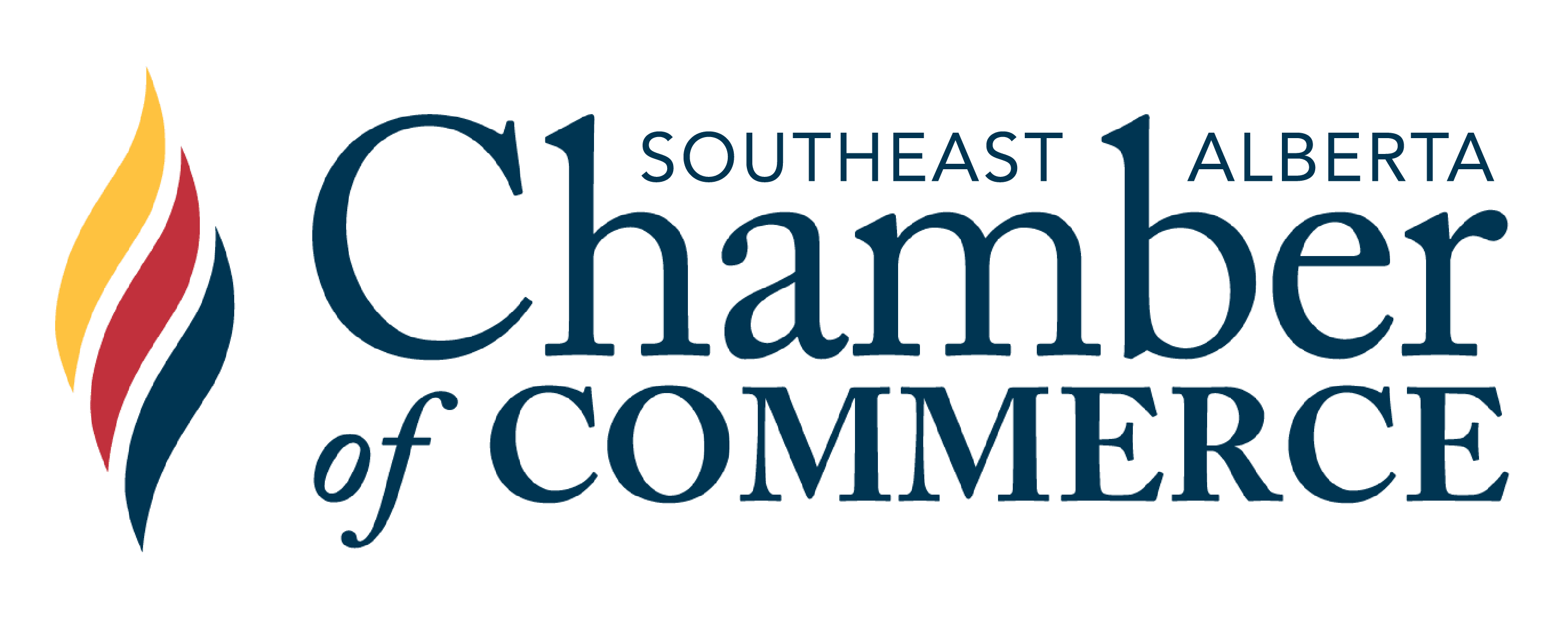
This is your opportunity to help as an essential source of information and solutions to strengthen our community as a catalyst for growth, as we work together to unite businesses, drive leadership, and fuel success through our Connections, Support, and Influence.
In accordance with the Bylaws and policies of the Southeast Alberta Chamber of Commerce, nominations are now open for the Southeast Alberta Chamber of Commerce Board of Directors.
Bylaws can be viewed online
Timeline
- Nominations open March 31, 2025
- The completed nomination form, 200 word profile and candidate photo must be received by the Chamber of Commerce office prior to 12:00 PM (noon) on Monday, May 5, 2025 to be considered by the Board Leadership Development Committee.
- Nomination forms will then be reviewed by the Board Leadership Development Committee.
- Interviews with candidates will be held during May.
- Ballots with your candidate profile will be sent to each voting delegate, which is the primary representative of each member company, no later than May 31, 2025.
- The ballots will be counted no later than Wednesday, June 18, 2025.
- The slate of new Directors will be invited to attend the fall Board of Director meetings.
- A slate of elected candidates will be presented for ratification at the Annual General Meeting in November.
- New Directors of the Board will assume their positions following the November Annual General Meeting.
- Board Directors are required to attend Board orientation and strategic planning set by the Board and are required to serve on at least one committee of the Chamber.
*Click here to review the full board nomination package
Any board director shall be a member in good standing for a minimum of two years, free of any conflict of interest and be willing and able to attend board meetings. In addition, it is highly desirable that candidates should be able to demonstrate a familiarity with the Chamber of Commerce’s activities and a level of involvement that demonstrates an ongoing commitment to the Chamber of Commerce’s goals and objectives.
We encourage nominees to attend any of the Chamber’s external committee meetings to gain knowledge and experience of the Chamber’s role prior to becoming involved on the Board of Directors.
Current involvement in a Southeast Alberta Chamber of Commerce committee or a task group is an excellent way for a candidate to gain experience and demonstrate commitment. In addition, the Board recognizes that to be effective it should represent as broad a range of industries and competencies and have the ability to provide worthwhile input to municipal, provincial and federal regulators on a variety of issues.
In order to provide you with insight regarding the responsibilities and commitments of an individual member of the Southeast Alberta Chamber of Commerce Board of Directors, we are providing you with information on the responsibilities of Directors of the Southeast Alberta Chamber of Commerce within this package.
When you have completed the nomination, submit the online nomination form or email the completed document with a 200-word profile and a recent photo or personally deliver it to the Southeast Alberta Chamber of Commerce:
Attention: Chair of the Leadership Development Committee
Southeast Alberta Chamber of Commerce
413 6th Avenue SE, Medicine Hat AB, T1A 2S7
Phone: 403-527-5214 Fax: 403-527-5182
E-Mail: president@southeastalbertachamber.ca
Oops. This form is no longer accepting responses
We're sorry but this form/survey is no longer accepting responses. If you have questions or believe this is an error, please contact us.
Southeast Alberta Chamber Of Commerce
413 6 Avenue Southeast, Medicine Hat, AB
(403) 527-5214
info@southeastalbertachamber.ca